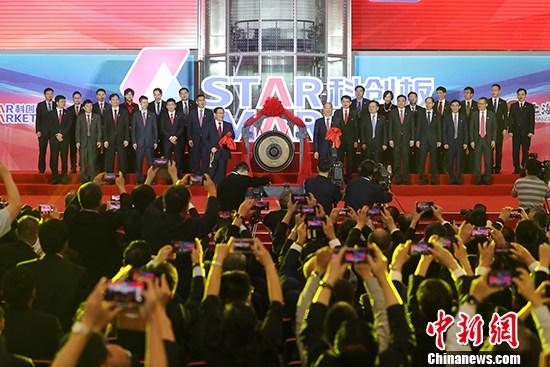
China's sci-tech innovation board (STAR market) started trading on the Shanghai Stock Exchange Monday morning, with the first batch of 25 companies debuting on the board. (Photo: He Junyi/ China News Service) China's sci-tech innovation board (STAR market) started trading on the Shanghai Stock Exchange Monday morning, with the first batch of 25 companies debuting on the board. Establishment of the STAR market and the pilot registration-based initial public offering (IPO) system will support China's innovation-driven economic development and the capital market reform, Li Chao, deputy head of the China Securities Regulatory Commission, said at the debut ceremony. The STAR board is the country's latest reform attempt to turn the A-share market into a more market-oriented and law-based one. Unlike other domestic boards, it cuts listing application red tape, allows more market-based pricing, prioritizes information disclosure, and tightens delisting rules by piloting the registration-based IPO system, a popular practice in many developed markets. Trading rules are also different, with no price change limits in the first five trading days. In following trading days, the board allows stocks to rise or fall by a maximum of 20 percent, higher than the 10-percent limit for most stocks on other boards. First proposed in November 2018, the new board is designed to provide direct financing support for companies in the high-tech and strategic emerging sectors, such as new-generation information technology, advanced equipment, new materials, new energy, energy saving and environmental protection. With much higher research and development investment than that of comparable firms listed on other domestic boards, the first batch of 25 companies on the STAR market are mainly in the new-generation information technology, advanced equipment and bio-medicine sectors. |